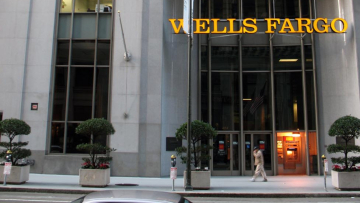PRB climate offshoots

There are two bank focused climate initiatives linked to the Principles for Responsible Banking (PRBs). These are the Collective Commitment to Climate Action (CCCA) and the Net-Zero Banking Alliance (NZBA). Both Initiatives are convened and supported by UNEP FI.
The Collective Commitment to Climate Action
In September 2019, on the launch date of the Principles for Responsible Banking, a subgroup of 38 PRB banks launched the Collective Commitment to Climate Action (CCCA). By joining the CCCA, these banks pledged to fast-track the PRB commitment to align their business strategy with the goals of the Paris Climate Agreement.
Signatories to the Collective Commitment to Climate Action promised that they would take decisive action from the moment of signing, focusing on the most carbon-intensive and climate-vulnerable sectors of their portfolios. The signatories are required to set and publish sector-specific targets for aligning their portfolios with the Paris Agreement, based on scientific climate scenarios, within three years of signing. The CCCA commitment at the time was consistent with a maximum temperature rise of well-below 2°C - equivalent to net-zero before 2065.
Signatory banks further committed to report on their progress in implementing their commitment and achieving the targets set. Every two years, banks report on their collective progress. The first collective progress report was published in December 2020, and can be found here.
Ultimately, the intention is that signatory banks to the CCCA will provide leadership, guidance, tools and frameworks to all signatories of the Principles for Responsible Banking.
Net-Zero Banking Alliance
In April 2021, an alliance of 43 banks, most of which are PRB signatories, launched the Net-Zero Banking Alliance. The alliance is convened by UNEP-FI and falls under the Glasgow Financial Alliance for Net-Zero (GFANZ). The banks that have joined the NZBA are committed to reach net-zero in attributable greenhouse gas emissions with their lending and investment portfolios by 2050 at the latest.
The banks have committed that they “will use well-recognised and credible sources for their decarbonisation scenarios that rely on no/low overshoot, rely conservatively on negative emissions technologies and minimize misalignment with the sustainable development goals (SDGs)”. The decarbonization scenarios will be reviewed and (if necessary) revised at least every five years after the target is set. Signatory banks have committed that they will also use the UNEP FI Guidelines for Climate Target Setting for Banks to set targets for 2030, or sooner, prioritizing GHG-intensive and GHG-emitting sectors.
Adopting banks have 18 months to formulate 2030 and 2050 targets and have the option to include underwriting of bonds and shares issuances into these targets. Banks have committed to publish annually about their progress and share with UNEP-FI members the progress they make.
For an overview of the overlap between PRB, CCCA and NZBA banks see here



